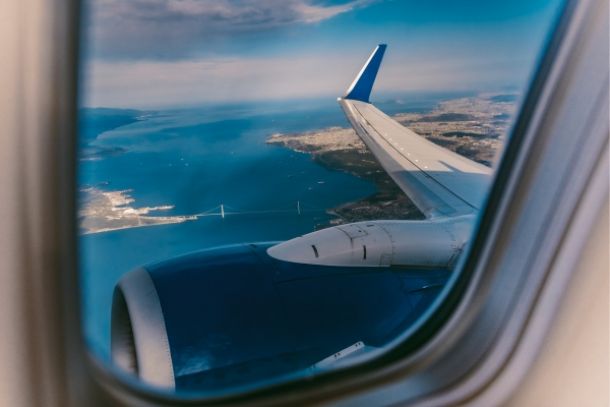How to Spot Hidden Fees and Avoid Extra Costs
How to Spot Hidden Fees and Avoid Extra Costs
When booking flights, the base fare is only part of the total expense. Hidden fees—such as baggage surcharges, seat selection fees, and service charges—can quickly turn an attractive deal into a costly proposition. Understanding how to identify and avoid these extra costs is essential for budget-savvy travelers. This article explores the common hidden fees in air travel, offers strategies to detect them early, and provides practical tips to minimize additional charges.
Common Types of Hidden Fees
1. Baggage Fees:
One of the most well-known additional charges is for checked luggage. Many airlines, particularly low-cost carriers, charge for checked bags and sometimes even for carry-ons. These fees can vary based on weight, size, and destination.
2. Seat Selection Fees:
Airlines often charge for selecting a preferred seat in advance. If you value extra legroom or a specific seat location, be prepared for an additional cost. In many cases, these fees can be avoided by choosing seats during online check-in or by accepting a random assignment.
3. Booking and Service Charges:
When you book through third-party sites or travel agencies, extra fees may be tacked on to your fare. These charges can sometimes be higher than booking directly with the airline.
4. Payment and Currency Conversion Fees:
Using certain credit cards for international bookings can incur foreign transaction or currency conversion fees. It’s important to check with your bank or card issuer to understand these costs.
5. In-Flight Extras:
On many flights, especially with budget carriers, items like meals, entertainment, and even water may come with an additional fee. While these might seem minor individually, they can add up over the course of a journey.
Strategies to Spot Hidden Fees
Read the Fine Print:
Always review the fare breakdown before finalizing your booking. Look for any details regarding baggage, seat assignments, or service fees. Airlines’ terms and conditions often include information on potential extra costs.
Use Comprehensive Search Tools:
When comparing flights, use search engines that provide a full breakdown of costs. Tools like Google Flights, Skyscanner, and Kayak often show additional fees associated with the base fare. If a website only displays the base price, visit the airline’s own site to see a more detailed cost breakdown.
Check Airline Policies:
Different airlines have varying fee structures. Visit the airline’s website and read their baggage and service policies. Understanding these policies before booking can help you factor in potential extra charges.
Search Reviews and Forums:
Online travel forums, blogs, and review sites like FlyerTalk can provide insight into hidden fees. Fellow travelers often share experiences about unexpected costs, offering practical advice on how to avoid them.
Be Cautious with “Too-Good-to-Be-True” Deals:
If a fare seems exceptionally low, check for potential hidden fees that may be offsetting the discount. Sometimes, an ultra-low fare is accompanied by steep baggage fees or other surcharges that make it less appealing in the end.
Tips to Avoid Extra Costs
Travel Light:
One of the simplest ways to avoid baggage fees is to pack only a carry-on. Review the airline’s size and weight restrictions carefully to ensure your bag qualifies as a free carry-on. This not only saves money but also streamlines your travel experience by eliminating the need for checked luggage.
Book Directly:
When possible, book directly through the airline’s website. Direct bookings can reduce the likelihood of additional service fees that third-party agencies often impose. Moreover, airlines sometimes offer exclusive promotions or waive fees for direct customers.
Join Loyalty Programs:
Frequent flyer programs can offer significant perks, including waived baggage fees or free seat selection. Even if you don’t fly frequently, signing up for an airline’s loyalty program may provide benefits that reduce your overall costs.
Use the Right Credit Card:
Select a travel credit card that offers benefits like waived foreign transaction fees and travel rewards. Some cards provide reimbursements for certain fees or offer points that can be redeemed for travel-related expenses, helping offset extra costs.
Plan Ahead for Seat Selection:
If having a preferred seat is important to you, consider booking early to secure a free seat selection before fees kick in. Alternatively, wait until check-in opens to see if you can get a complimentary seat assignment. This strategy can help you avoid the extra charge altogether.
Double-Check the Total Price:
Before finalizing any booking, review the total price including all fees. Some websites offer a “total cost” summary that can help you see the full picture. If you’re comparing two flights, the one with a slightly higher base fare might end up being cheaper overall when fees are factored in.
Final Thoughts
Hidden fees can significantly impact the true cost of air travel, turning an attractive base fare into a surprisingly expensive journey. By understanding the common types of extra charges and implementing a strategy to spot and avoid them, you can save money and reduce travel stress. Always read the fine print, use comprehensive search tools, and consider factors like baggage, seat selection, and payment fees when comparing flights. With careful planning and a proactive approach, you can navigate the complex world of airline pricing and keep your travel expenses under control—ensuring that you pay only for what you truly need.


